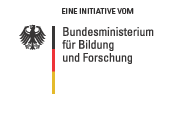Ulrike Lindequist: A pharmaceutical view of nature
-
 <ic:message key='Bild vergrößern' />
<ic:message key='Bild vergrößern' />
- Ulrike Lindequist is the Managing Director of the Institute of Pharmacy at the University of Greifswald. Quelle: Lindequist
07.03.2006 -
Ulrike Lindequist doesn’t make a great play of her work as a researcher. However, the Managing Director of the Institute of Pharmacy at the University of Greifswald shouldn’t be modest. The Natural Substances expert has just been involved in bringing a skin cream to the market which protects against multi-resistant bacteria, the active ingredient of which was discovered in seaweed.
Ulrike Lindequist’s enthusiasm for Pharmacy began very early on, although her family background was more in the crafts. “We had a very good Biology teacher at school and I’ve always had keen interest in Medicine”. However, it was clear from the beginning that Dresden-born Lindequist did not want to become a doctor. “I would have suffered too much with my patients”, she admits. As a newly-qualified Pharmacist, the young graduate did not have much choice of career – at that time this was a decision for the government. Her destiny was to be sent to Greifswald. “That’s how it was in DDR-times. You were sent where you were needed”, she remembers. She couldn’t have known that Northern Germany would be the base for a career and a lifetime of research. Initially, she expected to stay for three years, after which she hoped to find work as a pharmacist, with luck in the Saxon homeland. She credits her husband for the unexpected outcome. “I got to know him at Greifswald and I stayed”.
Ocean Fungae and Medicinal Plants
When Ulrike Lindequist thinks about it, she has to smile. Instead of a Pharmacy she’s now in a laboratory and has, as one of the very few female Professors in the field of Pharmacy, become an expert on active natural substances. The specialist subject of the 55-year old is marine substances, which is not surprising considering the location of Greifswald University. But the Baltic Sea has been far from the only thing in view. Taking in mushrooms from the Red Sea, medicinal plants from Nepal or Yemen and beyond, the list of her research projects is long and spans the globe. The core process is always the same: in an in-vitro test model, the natural extracts are examined for their characteristics. “If a promising capacity is recognised, the chemical structure will be clarified and ultimately reverse-engineered”. So describes Lindequist the long process of active substance research leading to an applicable product. In the meantime, the Greifswald researchers have collaborated with colleagues in Rostock in developing a patented procedure involving the use of enzymes extracted from wood-consuming fungi. These enzymes make it possible to synthesize and manufacture variations of natural substances according to specific guidelines.
Skincream protects against bacterial infection
Nothing pleases Ulrike Lindequist more than finding a cooperating partner whose main aim is to develop a marketable product. This was the basis for the creation of a skin cream based on algae extracts. Together with the company Heitland & Petre, Lindequist and her team developed and enhanced a substance, originally found in marine algae, which is able to protect against infection by the multi resistant strain of the bacteria Staphylococcus aureus. “This germinal is resistant to a variety of antibiotics and is a much-feared enemy in hospitals”, explains Lindequist. The natural substance was altered so that it could be used in a skin cream. The advantage over normal disinfectants is that it does not attack the skin flora.
The ocean’s wealth of active substances
As to the great wealth of substances that might be found in the world’s oceans, Lindequist can only speculate. Over the years, together with other scientists and colleagues from Greifswald and Rostock, she has already isolated and tested the properties of more than 300 algae, mushrooms, mussels, snails and worms, and examined their capacity to combat pathogens, tumor cells and enzymes. At present, young co-workers are coordinating these findings into a resource-centre for marine organisms, in order to make them available to the greatest number of possible uses. Ultimately, the skin cream should be far from the last product discovered and developed using these methods.
Lindequist is by no means limiting the research for new substances to marine-life. In 2000, together with other partners, she founded the biotech company Ganomycin GmbH. On the basis of research at the university, among other things, biologics from the tree fungus Ganoderma pfeifferi are being developed that bear close resemblance to an East Asian fungus with healing properties.
Alongside her research, Ulrike Lindequist finds much enjoyment in working with her students. Furthermore, she is an author of textbooks and writes, amongst others, for the pharmacy textbook “Biogene Arzneimittel” ("Biogenous Pharmaceuticals"). When time allows the mother of two loves to spend time with her six-year old grandchild, or to travel.


